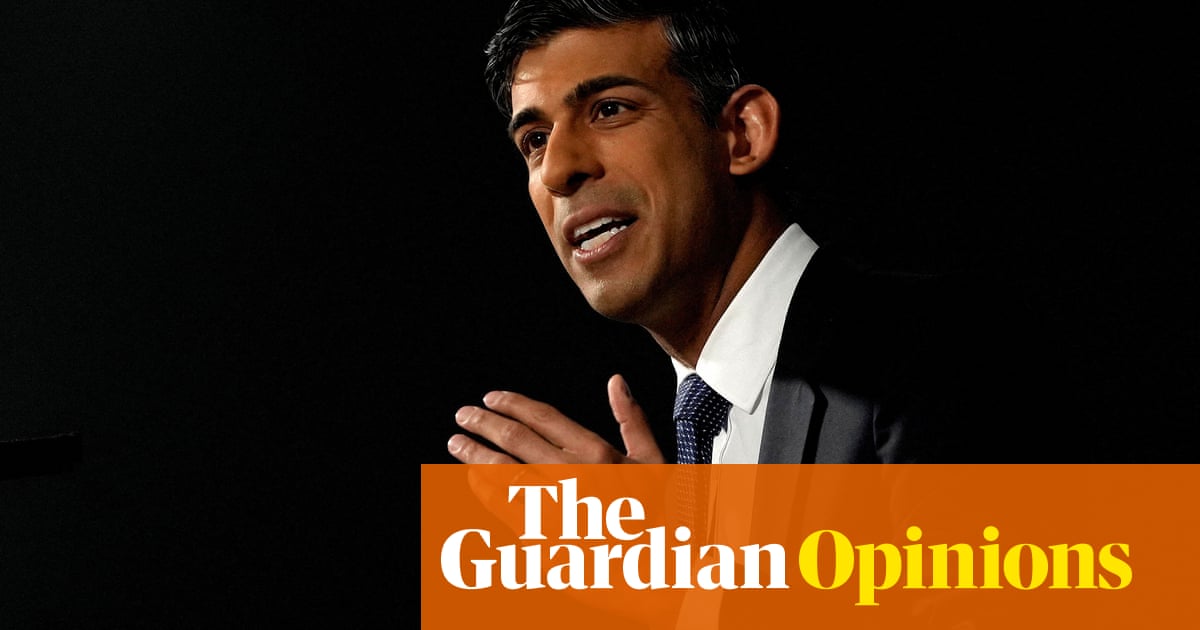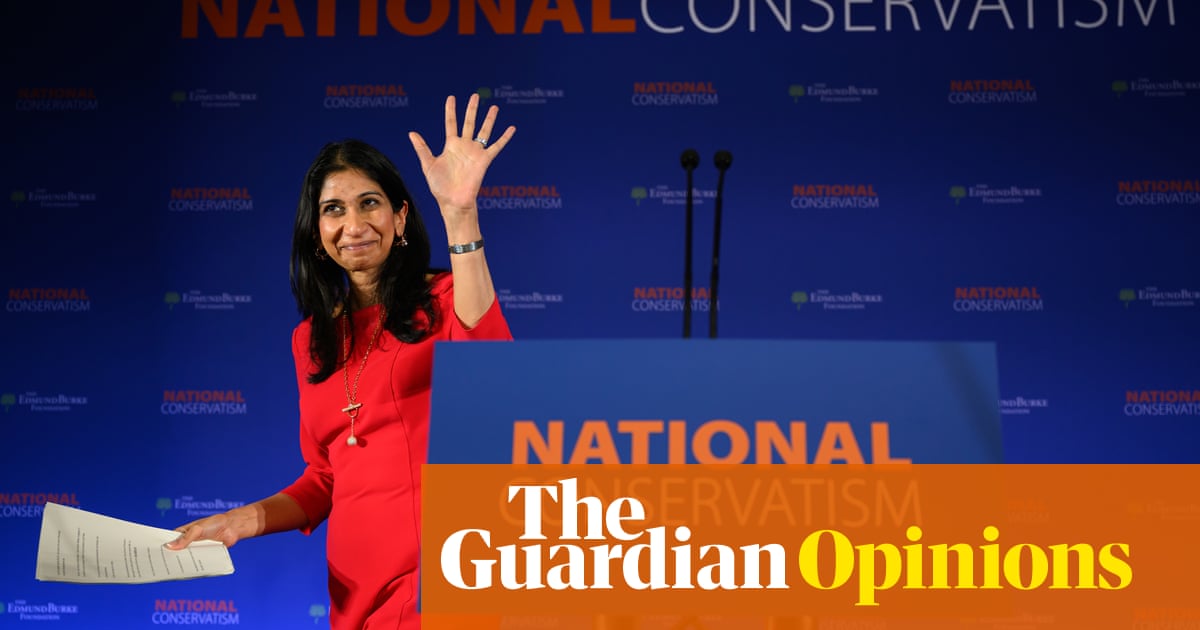
The Conservative party has supplied Britain with as many prime ministers since 2010 as Labour managed in the whole of the 20th century. It is a tally that describes ruthless effectiveness at keeping power and a dismal record of doing anything useful with it.
The high leadership turnover – four in the past four years – is a symptom of failure at everything except the art of avoiding responsibility and deflecting blame. That is the craft Rishi Sunak must master to have a chance of staying in office after the next general election.
The biggest obstacles will be economic stagnation and degraded public services. The combination induces national despondency. Too many people feel poorer now than they did at the start of the Tories’ 13-year run to believe that the remedy is more of the same.
But that won’t be the pitch. A benefit of changing leaders is the opportunity to pretend that a new prime minister represents a fresh start. The downside to resetting the clock is a tacit admission that previous leaders did little to justify them staying in office and a lot to make their defenestration urgent.
Sunak embodies that contradiction. He dare not govern in explicit emulation of Liz Truss, Boris Johnson, Theresa May or David Cameron, but his room for manoeuvre is circumscribed by the accumulated inheritance of their mistakes.
The prime minister does have two discernible achievements to his name, both of which are corrections of grievous errors by his immediate predecessors. He put out the bonfire of financial credibility lit by Truss and he replaced Johnson’s toddler tactics with adult diplomacy in relations with the European Union. That still leaves him with an unpopular fiscal policy of rationing resources to a public sector already enfeebled by austerity, and a Brexit policy defensible only as palliation of a chronic syndrome debilitating the economy.
With a general election due before 2025, Sunak doesn’t have time to build a substantial record in government. He will struggle to clear even the low bar he set for himself – five promises to be fulfilled without “tricks or ambiguity” – at the start of this year.
Already there is ambiguity. Tricks will follow. When it comes to “stopping the boats” that illegally ferry migrants across the Channel, the prime minister will not commit to any measure of boat-stoppage by election time. “It is a complicated problem where there is no single, simple solution,” Sunak has said, spelling out a banal truth of all migration policy that happens to be absent from the law his government is passing to meet its headline goal.
The bill is conceived more as a campaign aid than a workable policy measure. It flouts international law and mandates detention and deportations on a scale that couldn’t practically be achieved even if they were legal.
But the function of such a law is to demonstrate ferocity of intent to stop boats and to solicit opposition from the Labour leader, Keir Starmer, which can be narrated as softness on an issue where target voters want toughness. Once enacted, the law’s secondary function kicks in: provoking a culture war skirmish with any judicial authority that dares to insist that the British state meet its obligations to respect refugees’ human rights. If that authority is European, all the better.
Laws written for the purpose of stirring controversy can only achieve that aim at the expense of good government. The need to broadcast a blunt message to voters with limited appetite for policy nuance militates against sophisticated, evidence-driven solutions to problems that are, as Sunak says, complicated.
There is a normal tension between easy promises made at election time and their difficult subsequent realisation by the winning side. Democracy is supposed to manage that tension across an electoral cycle. In theory, there is a period between ballots where governments make hard choices, inflict disappointments and broker compromises. Then they return to the country after four or five years to ask whether the trade-off has been worth it.
But that slack phase of the cycle, when the screech of a campaign gives way to the hum of policy delivery, has been absent from British politics in recent years.
Between 2015 and 2020 there were three general elections and a referendum. In the past eight years, Labour and the Tories have held six leadership contests between them, not counting Sunak’s recent coronation. Every one of these party ballots required dishonesty from candidates about the challenges ahead. They privileged activist bases that are not representative of the mainstream electorate when setting the terms of debate.
In Scotland, the frenzy started even earlier with the 2014 independence referendum and has been sustained at a higher pitch because the Westminster cycle is punctuated with Holyrood elections.
One reason the Scottish National party finds itself now in a state of financial crisis and political turmoil is over-reliance on the campaign ideal of independence as a motor force to counteract the weight of incumbency. Operating in perpetual campaign mode allowed the SNP to defer judgment of its record on the state of Scottish schools, hospitals and transport links. Nicola Sturgeon’s talents as a communicator and her iron grip on the party apparatus defied political gravity which, since her departure, has struck back.
Sunak faces the same foe on a bigger scale. Unlike the SNP, Tory nationalists won their emancipatory plebiscite. But victory wasn’t followed by transition out of campaign mode. The promises made to leave voters could not be honoured by the process of leaving the EU, which meant Brexit could never be declared a triumph and the hunt for saboteurs had to begin almost immediately. It has evolved into a wider campaign against anyone who dares to assert that policies born of Eurosceptic delusion might fail in practical application.
The ideological core of British Conservatism now shades into conspiracy theory – joining the dots between disparate agents of liberal and leftwing opinion in politics, media, culture and academia to make a pattern of counter-revolutionary obstruction.
This is the ethos that leads Conservative MPs to assert that an independent report finding Dominic Raab guilty of bullying his staff is actually the opposite: a story of vindictive civil servants refusing submission to the robust managerial methods of a man whose practical accomplishments in three cabinet roles spanning five years add up, in a generous audit, to none.
Sunak chooses to ignore the contradiction here. He wants to be the prime minister whose business is serious, problem-solving government, while also riding the campaign bus fuelled with denial of governing reality. He styles himself as the leader who brought the Conservatives down to earth, when he is their latest trick for defying gravity.
Rafael Behr is a Guardian columnist
Rafael Behr will discuss his new book, Politics: A Survivor’s Guide, at a Guardian Live event on Monday 12 June. The event will be live in London and livestreamed. Book tickets here












